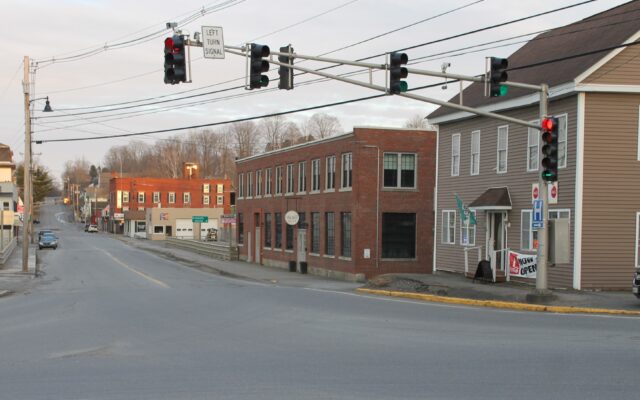
Teams around Maine just got $25K each to figure out how to tackle a pressing local challenge
By Emily Burnham
Bangor Daily News Staff
A team in Bangor wants to try to break down barriers to employment for low income residents. A team in Piscataquis County hopes to more easily connect at-risk residents with social services, transportation and technology. And a team in the Katahdin region wants to build a thriving outdoor economy that puts its younger residents to work.
They haven’t yet figured out exactly how to do it, but they and five other teams have $25,000 with which to come up with a plan, thanks to a new Maine initiative by the Federal Reserve Bank of Boston.
The federal bank, known commonly as the Boston Fed, received 22 applications last year from all 16 Maine counties for the Working Communities Challenge, a program that aims to mobilize Mainers to address challenges and seize opportunities in their communities, through collaborations between municipalities, organizations and businesses. From those, eight teams were chosen.
Over the next six months, each of the eight Maine teams will use their $25,000 grant to design a program to address a unique challenge in their community, such as job training, access to child care, substance abuse, broadband access and economic development. After six months, each team will then apply for a second round of grant funding, and five will be chosen to each receive $375,000 to implement the program they came up with the first round.
The eight Maine teams selected to receive the $25,000 design grant are based in Cumberland County, Greater Bangor, the Katahdin Region, Lewiston and Auburn, the Maine Highlands, Sagadahoc County, Southern Kennebec County and Washington County and the Passamaquoddy Tribe.
“We were thrilled to see such widespread interest across Maine,” said Peter Nalli of the Boston Fed, who leads the Working Communities Challenge for Maine. “These eight recipients also represent a pretty diverse group of Mainers, from urban and rural areas, and are focused on a wide array of topics.”
The Working Communities Challenge, part of the Boston Fed’s Working Places program, has its precursor in the Working Cities Challenge, a similar program targeted to mid-sized cities in Massachusetts, Connecticut and Rhode Island. That challenge resulted in some success stories in cities like Lawrence, Massachusetts, a once-booming textile mill town that became one of the poorest cities in the state by 2010. The Lawrence Working Families Initiative, a grant recipient, has placed more than 160 parents of students in Lawrence Public Schools into better-paying jobs, according to its website.
“The collaborative work done in Lawrence really drove a change in how they operate schools,” Nalli said. “It’s all about change at the local level, and rallying a group of local leaders around a shared goal, and helping people collaborate to solve a problem, or unlock a new opportunity.”
Sue Mackey Andrews of Dover-Foxcroft, who leads the team working in the Maine Highlands, said the access to training provided by the program is a major boon, as is the collaboration fostered between team members working in both the public and private sectors.
“This program is asking us to focus on families living in poverty, and doing something bold that creates deep, systemic change,” Mackey Andrews said. “That’s a big list of things we could tackle, especially in the middle of a pandemic. We assembled a dynamic, multi-sector team of 47 people, and went through a process of talking about common challenges. That’s invaluable.”
In the Maine Highlands, some of the potential things that the team hopes to address during the design phase is how to connect low and moderate income Piscataquis County residents with things like access to the internet and other technology, access to transportation and access to a range of social services.
In the Greater Bangor region, Tanya Emery, Bangor’s economic development director, leads the team with Chris Linder of Bangor-based MaineStream Finance, a nonprofit community development financial institution. Their team plans to work on addressing workforce development among people in the region that have some sort of barrier to sustainable employment, such as a criminal record or a history of substance abuse.
Emery said they applied for the program and formed their team not because of the grant money, but because the Working Communities Challenge offered them an opportunity to really home in on some of the major challenges facing the region, like workforce development.
“In the past, when we’ve tried to address this issue, it’s been like we’ve had the right ingredients, but we didn’t have the recipe,” Emery said. “The most valuable piece of this is the assistance we’re receiving from these other communities that have been through this process, and seeing the work they did and how we might replicate it here. It’s given us a lot of galvanization around this issue, and we have a really deep and committed team from all these different sectors of the community.”
The Working Cities Challenge was started by the Boston Fed in 2013, first in Massachusetts, before expanding to Connecticut and Rhode Island. In 2019, the Working Communities Challenge, geared toward rural communities, was launched in Vermont, and the Maine challenge launched in 2020, backed by $2.7 million in local and national philanthropic contributions, federal grants and business contributions. The state has contributed $300,000 over three years.
So far, the Boston Fed is the only Federal Reserve Bank district in the county to offer such a program, though the districts in Richmond and in Dallas are considering similar initiatives.
More information on all eight participating teams from Maine, as well as the other teams across New England, can be found on the Boston Fed’s Working Places website.